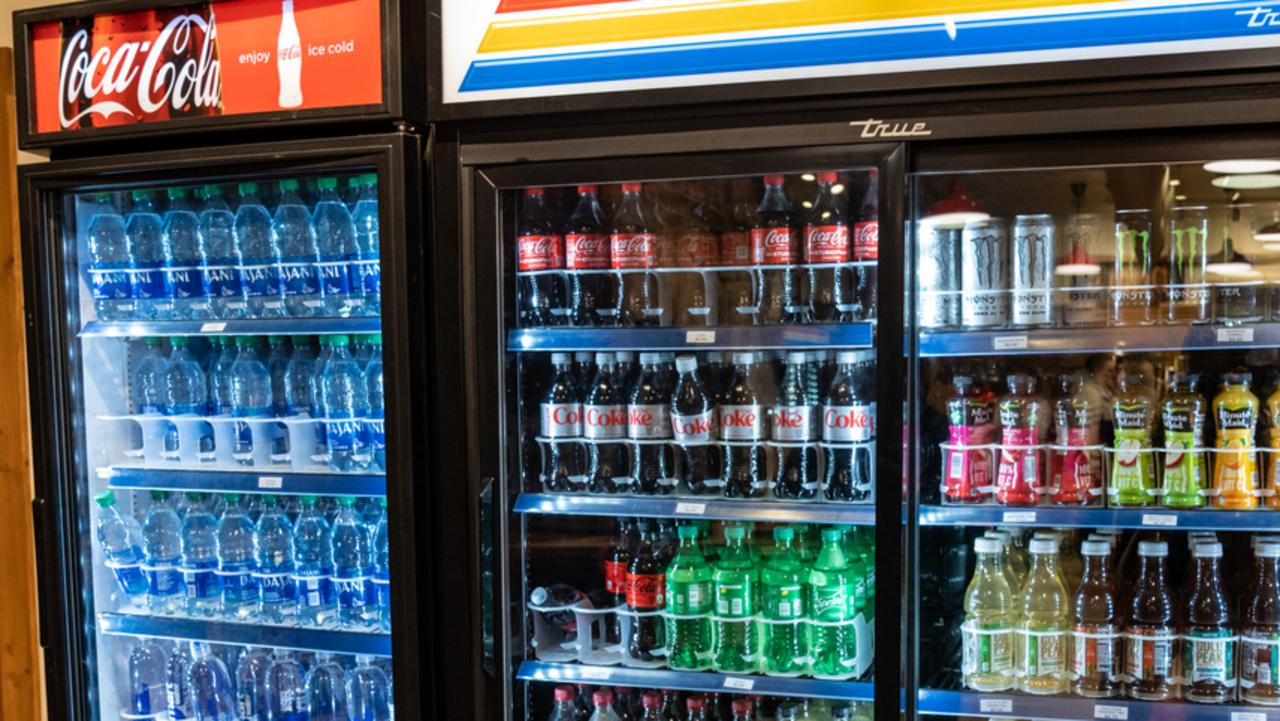Study shows that diet soft drinks are linked to an increased risk of illness – Is it time to ditch fizzy drinks?
- Replies 6
With all the talk about how bad sugary soft drinks have been in the past several years, it can be easy to think that diet soft drinks are 'healthier' than their full-sugar counterparts. (Have you ever heard of the comedy sketch where people order a ton of fast food meals only to 'balance out' the unhealthy food with diet Coke on the side?)
Sure, diet soft drinks don't have much sugar or calories, but that doesn't mean they're actually good for you.
Whether it's Diet Coke, Coke Zero, or any other 'lite' soft drinks sold in grocery stores, it's important to know that instead of sugar, beverage companies usually use artificial sweeteners like aspartame, acesulfame potassium, and sucralose to make their drinks taste like regular soft drinks.
In most cases, these artificial sweeteners are not a healthy replacement for sugar, as the findings of a recently published study have shown.

Diet soft drinks were shown to be no healthier than regular soft drinks in a newly published study. Credit: iStock.
In a 12-year study that was published in the British Medical Journal, researchers from the French National Institute for Health discovered that consumption of all artificial sweeteners was linked to a higher risk of life-threatening illnesses such as heart disease and stroke.
According to the findings of the study, even drinking less than one can per day can be enough to seriously harm one's health.
Dr Mathilde Touvier, the lead author of the study, said that there might be a direct link between consuming artificial sweeteners (especially aspartame, acesulfame potassium, and sucralose) in beverages and having a higher risk of heart disease.
'Artificial sweeteners are present in thousands of food and beverage brands worldwide. However, they remain a controversial topic and are currently being re-evaluated by the European Food Safety Authority, the World Health Organisation and other health agencies,' she added.
The study found that a 'high consumer' took an average of 77.6mg of sweetener per day, while a 'low consumer' took only 7.5mg per day. A typical diet soft drink has 42 mg of sweetener per 100 ml or about 140 mg per can.
This would imply that regularly consuming even a small amount of diet soft drink, such as half a can, could potentially be harmful to one's health.

Australia's supermarkets have a wide variety of sugar-free food and drink options. Credit: iStock.
According to statistics gathered from 130,000 French consumers, a third of them regularly consume sugar-free products that contain aspartame, sucralose, and acesulfame potassium.
People who consumed sweeteners more than the average person had a heart disease rate of 346 per 100,000, which was 10% higher than the average rate of 314 per 100,000 for people who didn't use sweeteners.
Their stroke rate was also higher—195 compared to 150, which is a 30 per cent increase.
Several of the most popular food and drink products now found in Australia's supermarkets are made with sugar-free alternatives, some of which can still be harmful to your health and even worsen your teeth if you drink them often.
Water is still your best bet, and just because a beverage is 'sugar-free' does not give you an excuse to consume it in large quantities daily, as stated on the NSW Health website.
When deciding whether or not to approve a sweetener or other ingredient for use in Australia, Food Standards Australia New Zealand (FSANZ) conducts rigorous safety studies and recommends maximum levels to be used in foods.
So don't worry if you like to drink 'sugar-free' drinks every now and then—they're well regulated in Australia. Even so, moderation is still the key!
Leave your comments below with your thoughts on this subject! We'd be thrilled to hear from you. On that note, which sugar-free beverage from the grocery store aisles is your go-to?
Sure, diet soft drinks don't have much sugar or calories, but that doesn't mean they're actually good for you.
Whether it's Diet Coke, Coke Zero, or any other 'lite' soft drinks sold in grocery stores, it's important to know that instead of sugar, beverage companies usually use artificial sweeteners like aspartame, acesulfame potassium, and sucralose to make their drinks taste like regular soft drinks.
In most cases, these artificial sweeteners are not a healthy replacement for sugar, as the findings of a recently published study have shown.
Diet soft drinks were shown to be no healthier than regular soft drinks in a newly published study. Credit: iStock.
In a 12-year study that was published in the British Medical Journal, researchers from the French National Institute for Health discovered that consumption of all artificial sweeteners was linked to a higher risk of life-threatening illnesses such as heart disease and stroke.
According to the findings of the study, even drinking less than one can per day can be enough to seriously harm one's health.
Dr Mathilde Touvier, the lead author of the study, said that there might be a direct link between consuming artificial sweeteners (especially aspartame, acesulfame potassium, and sucralose) in beverages and having a higher risk of heart disease.
'Artificial sweeteners are present in thousands of food and beverage brands worldwide. However, they remain a controversial topic and are currently being re-evaluated by the European Food Safety Authority, the World Health Organisation and other health agencies,' she added.
The study found that a 'high consumer' took an average of 77.6mg of sweetener per day, while a 'low consumer' took only 7.5mg per day. A typical diet soft drink has 42 mg of sweetener per 100 ml or about 140 mg per can.
This would imply that regularly consuming even a small amount of diet soft drink, such as half a can, could potentially be harmful to one's health.
Australia's supermarkets have a wide variety of sugar-free food and drink options. Credit: iStock.
According to statistics gathered from 130,000 French consumers, a third of them regularly consume sugar-free products that contain aspartame, sucralose, and acesulfame potassium.
People who consumed sweeteners more than the average person had a heart disease rate of 346 per 100,000, which was 10% higher than the average rate of 314 per 100,000 for people who didn't use sweeteners.
Their stroke rate was also higher—195 compared to 150, which is a 30 per cent increase.
Several of the most popular food and drink products now found in Australia's supermarkets are made with sugar-free alternatives, some of which can still be harmful to your health and even worsen your teeth if you drink them often.
Water is still your best bet, and just because a beverage is 'sugar-free' does not give you an excuse to consume it in large quantities daily, as stated on the NSW Health website.
When deciding whether or not to approve a sweetener or other ingredient for use in Australia, Food Standards Australia New Zealand (FSANZ) conducts rigorous safety studies and recommends maximum levels to be used in foods.
So don't worry if you like to drink 'sugar-free' drinks every now and then—they're well regulated in Australia. Even so, moderation is still the key!
Leave your comments below with your thoughts on this subject! We'd be thrilled to hear from you. On that note, which sugar-free beverage from the grocery store aisles is your go-to?







